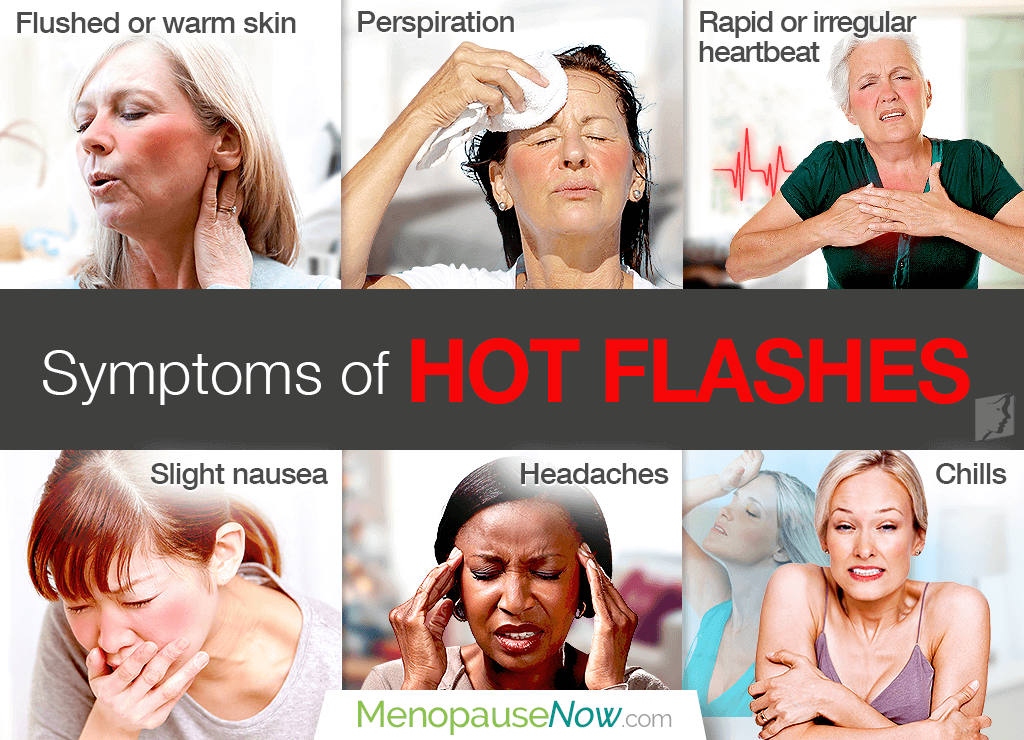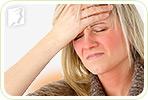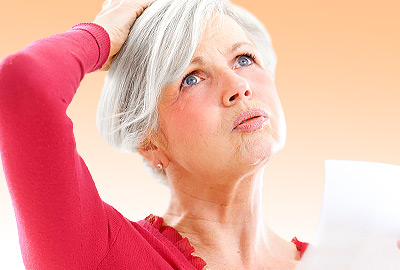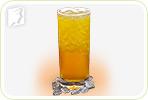Hot flashes can cause discomfort, embarrassment, and frustration. They can strike unexpectedly, often at the most inconvenient times. But how can you know if what you're experiencing is actually a hot flash?
In order to effectively manage hot flashes, it's important to first understand what they are and to be aware of symptoms of hot flashes.
About Hot Flashes
Hot flashes are characterized by a sudden rush of heat that radiates throughout the body for a short time. These episodes often last about thirty seconds, although there are certain cases where hot flashes can last longer.
Doctors and researchers estimate that up to 75% of American women will experience hot flashes during the menopausal transition.
During menopause, hot flashes are generally an indicator of changing hormone levels in women's bodies. When estrogen is especially low, the hypothalamus in the brain — responsible for regulating body temperature — reacts by causing the body to heat up quickly in what can be described as a mild, brief fever.
Symptoms of Hot Flashes
Hot flashes are generally diagnosed based on a woman's symptoms. Aside from the momentary sensation of heat, there are a few other indications that you might be experiencing a hot flash. These include:
Flushed or warm skin. Skin will often feel warmer to the touch than usual, and those with lighter skin tones may notice a flushed pink or red color in the cheeks.
Perspiration. Many women sweat much more than normal when they are experiencing a hot flash. Though this can be uncomfortable, it usually passes quickly.
Rapid or irregular heartbeat. Also contributing to the warm skin and perspiration, a rapid or irregular heartbeat should return to normal shortly after a hot flash episode. If it doesn't, consult a doctor to rule out other causes.
Slight nausea. Sudden, slight feelings of nausea are usually brief and don't necessarily result in vomiting.
Headaches. Headaches might last longer than nausea, but they should dissipate on their own. If they persist or become severe, over-the-counter painkillers will usually take care of the discomfort.
Chills. Many times, after the sensation of extreme heat passes, perspiration is still on the skin, causing chills to directly follow hot flashes.
Hot Flashes Treatments
Women who are fighting hot flashes and other symptoms of menopause and want to regain control over their bodies have many treatment options. These hot flash treatments can be divided into lifestyle changes, alternative medicine, and prescription medications.
For women going through the menopausal transition, the most important facet to focus upon is re-balancing hormones. Only then will your hot flashes subside as well as various other bothersome symptoms.
Don't let hot flashes plague your years after reproductivity. Explore these options and talk to your doctor about the safest and most effective treatment plan for your specific case.
Sources
- Mayo Clinic. (2018). Hot flashes: Symptoms & causes | Hot flashes: Diagnosis & treatment. Retrieved March 19, 2019, from https://www.mayoclinic.org/diseases-conditions/hot-flashes/symptoms-causes/syc-20352790 | https://www.mayoclinic.org/diseases-conditions/hot-flashes/diagnosis-treatment/drc-20352795
- Sievert, L.L. (2013). Subjective and objective measures of hot flashes. American Journal of Human Biology: The Official Journal of the Human Biology Council, 25(5), 573-580. doi: 10.1002/ajhb.22415




